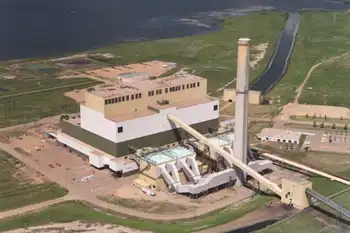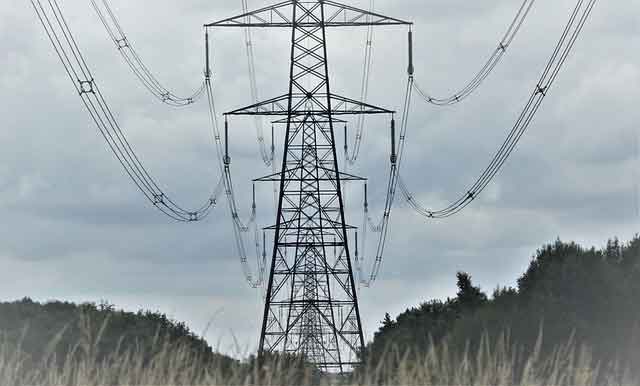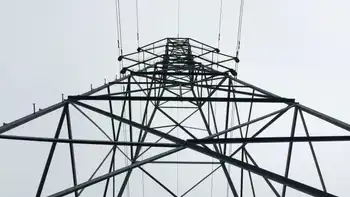British Energy Confident After Dismal Past
UNITED KINGDOM -- - Mike Alexander, the Chief Executive of stricken nuclear generator British Energy, was confident the East Kilbride group has a viable future even though the company is still teetering on the brink of insolvency.
His upbeat assessment came as the group announced one of the biggest ever annual losses in UK corporate history of some (pounds) 4.3bn, after plant writedowns and other balance sheet writeoffs.
It reported (pounds) 3.7bn of asset writedowns, including the values of both its Scottish plants at Hunterston and Torness.
Even without these asset writedowns, plus further balance sheet writeoffs, British Energy was still in loss to the tune of (pounds) 130m, well short of last year's profit of (pounds) 42m.
The group, which generates 20% of all the UK's electricity, had to be rescued by the government last year and has been kept afloat with a (pounds) 650m loan and bail-out package.
This was made on the proviso that the group sell its foreign assets and agree to a financial restructuring.
British Energy yesterday said the current uncertainty over its future could drag on for at least another year.
The government's rescue plan still depends on whether management can get agreements from debtors to forgive some borrowing and on European Commission clearance.
Asked whether this was achievable, Alexander said: "It's never done 'till it's done, but we and the government believe it will be done."
However, he issued a stark warning that there were still huge difficulties to overcome, which could still lead to insolvency if they failed.
Pricing has been at the heart of British Energy's problems in the wake of the Electricity Trading Arrangements deal of April 2001, which has slashed market rates by (pounds) 9 per megawatt hour to around (pounds) 16.
Alexander said he hoped cost cuts and promised further efficiencies would allow the group to compete in the electricity market.
He added: "We are looking at the cost base across the piece. Our workforce will never be stable, but it will remain at the current 5100 level. But ours is not a focus on people, it's a focus on efficiency."
Alexander said that the company was still in talks with "a couple of potential bidders" interested in buying its half-share of US subsidiary AmerGen, jointly owned with Exelon, and which owns the notorious Three Mile Island nuclear plant in the US.
Last month the joint venture partners said they had yet to receive high enough offers.
Workers at the plant's Oyster Creek reactor in New Jersey went on strike over pay on May 22.
Part of the government's bail out deal stipulated the disposal should be concluded this month, but this deadline will not now be met.
The government yesterday confirmed it had "relaxed" the deadline in order to give the management breathing space to negotiate the best deal possible.
Alexander said: "Naturally, they (government) are disappointed (over the missed deadline) but they are looking for value and we are trying to get a true value compensation."
British Energy sold its 82% stake in Bruce Power in Canada for (pounds) 215m earlier this year, satisfying another of the government's bail-out conditions.
One major obstacle to the group's continued progress is the European Commission, which has to rubber stamp the government bail- out and financial overhaul of the UK nuclear generator.
Alexander was confident the green light will be given by the summer of 2004, allowing the completion of British Energy's debt- for-equity swap with creditors by the autumn.
He was unable to say how much of the financially crippled group existing investors would get following the debt-for-equity swap.
However, reports suggest it could be as little as 1% and as much as 5%.
Related News

China aims to reduce coal power production
BEIJING - China plans to slash coal-fired power capacity at its five biggest utilities by as much as a third in two years by merging their assets, according to a document seen by Reuters and four sources with knowledge of the matter.
The move to shed older and less-efficient capacity is being driven by pressure to cut heavy debt levels at the utilities. China, is, however, building more coal-fired power plants and approving dozens of new mines to bolster a slowing economy.
The five utilities, which are controlled by the central government, accounted for around 44% of China’s total coal-fired power capacity…




